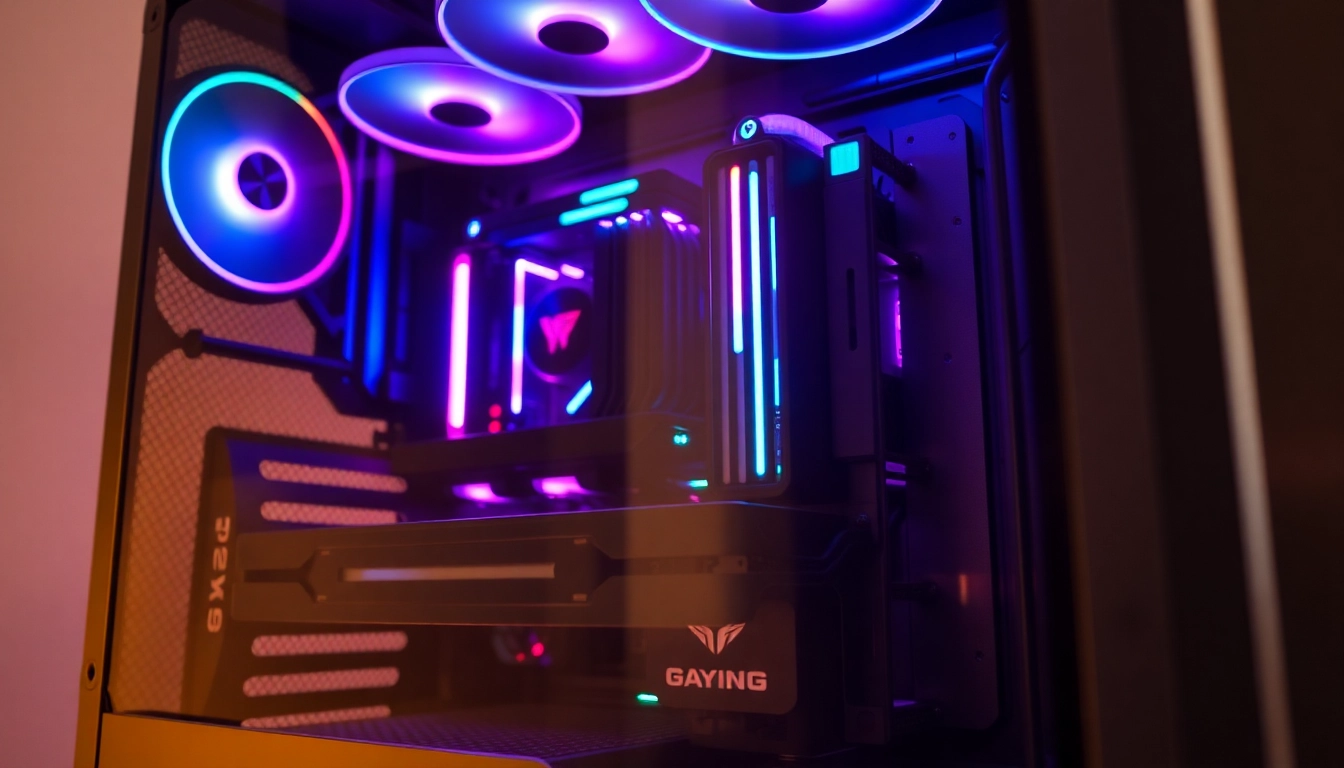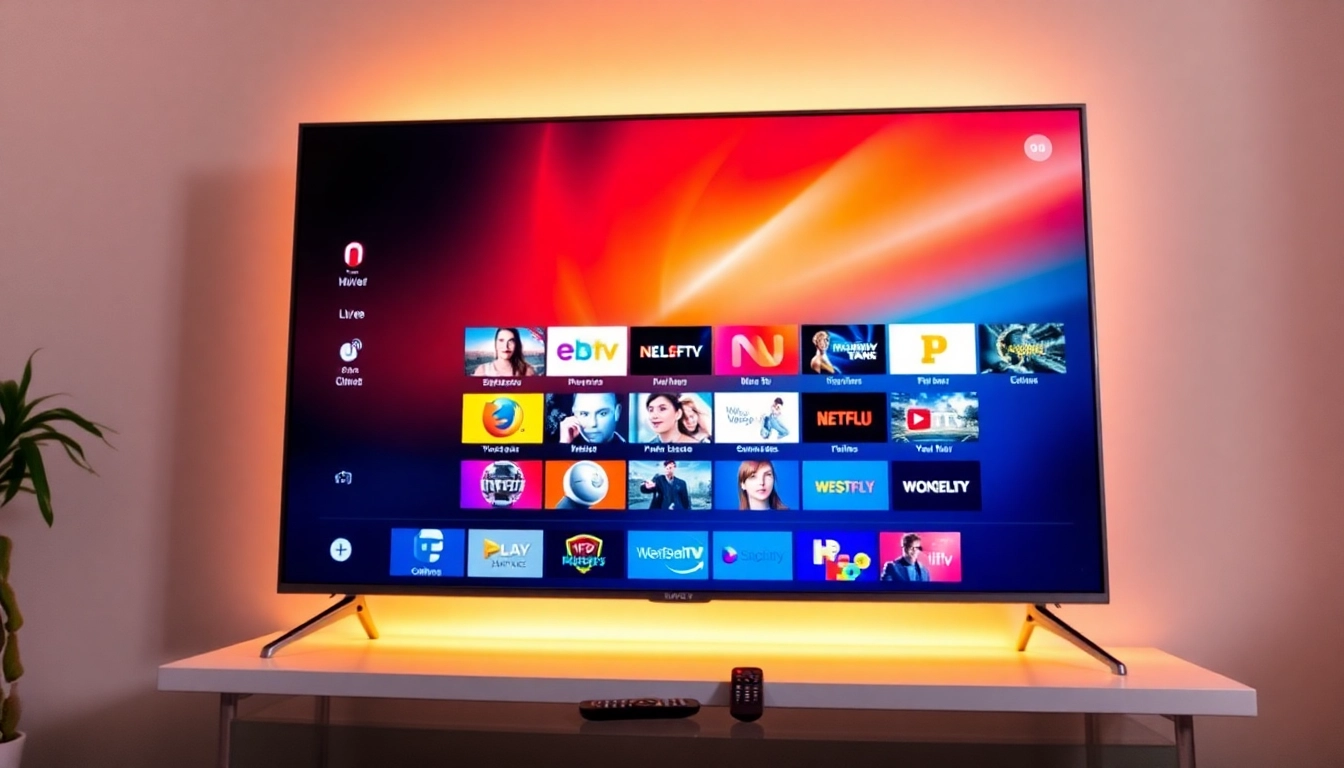Understanding Different Types of PC Cases
When venturing into the world of custom PCs, one of the most pivotal choices that builders face is selecting a suitable case. As a PC CASE Supplier, it is essential to understand the various types of cases available, their specifications, and how they cater to different user needs. With a multitude of options on the market, it can be overwhelming to navigate the landscape of computer cases. This guide aims to provide an in-depth insight into the different types of PC cases, emphasizing their importance and helping you make an informed decision.
What is a PC CASE Supplier?
A PC Case Supplier is a retailer or manufacturer that specializes in providing a range of computer cases designed to house PC components securely and effectively. These suppliers not only sell cases but also often offer comprehensive solutions including accessories, cooling systems, and sometimes even custom modifications. The right supplier will provide quality materials, functional designs, and brands known for their reliability, all of which are crucial for anyone looking to build a computer.
Full Tower vs. Mid Tower: Which is Right for You?
PC cases come in various sizes, with Full Tower and Mid Tower being among the most popular options. Full Tower cases are larger and can accommodate more hardware, including multiple GPUs, high-end cooling systems, and extensive storage solutions. They are ideal for users looking to build high-performance systems, such as gaming rigs or workstations. In contrast, Mid Tower cases strike a balance between size, expandability, and ease of use, making them suitable for average gamers and general usage builds.
The Importance of Size and Compatibility
Choosing the right size for your PC case influences not only aesthetics but also functionality. Compatibility with motherboards, graphics cards, and cooling systems is essential. Cases are generally categorized into ATX, Micro-ATX, and Mini-ITX sizes. An ATX case will fit all sizes, including Micro-ATX and Mini-ITX, while a smaller case may limit future upgrades. It’s critical to consider not just current needs but also potential future expansions when selecting the right PC case size.
Key Features to Look for When Choosing a PC Case
Cooling Solutions: Fans and Liquid Cooling Options
One of the primary purposes of a PC case is to facilitate the cooling of internal components. Cases should provide ample airflow through strategically placed fans and vents. Some higher-end cases also support liquid cooling systems that can significantly lower temperatures for powerful hardware. When choosing a case, consider how many fans can be fitted and if it has provisions for radiators, especially if you plan to overclock your CPU or GPU.
Material Matters: Steel, Aluminum, or Plastic?
The material used in a PC case affects durability, weight, and thermal performance. Steel cases are often more affordable and sturdy, while aluminum options are lighter and can be aesthetically pleasing but come at a higher price point. Plastic is typically found in budget cases and is often less durable. Weigh these factors against your budget and aesthetic preferences when selecting a case to ensure it aligns with your requirements.
Design Elements: RGB Lighting and Aesthetic Choices
While functionality is paramount, many users also prioritize aesthetic features. RGB lighting is a popular design element among gamers who want their builds to stand out. Several modern cases come equipped with tempered glass side panels that showcase internal components and lighting effects. Consider the overall design, including color schemes and potential for future upgrades when selecting your case.
Top Brands of PC Cases on the Market
Leading Names in PC Case Supplier Industry
The PC case market is populated with various trusted brands known for their quality and innovation. Companies like Corsair, Thermaltake, Lian Li, and Cooler Master are renowned for producing cases that combine functionality with aesthetic appeal. Each brand offers various options catering to different user needs, from affordable entry-level cases to high-performance solutions.
Comparative Analysis of Performance and Price
When evaluating PC cases, it’s important to compare performance features against pricing. High-end brands may offer advanced cooling solutions and superior materials but can come at a premium. It is advisable to analyze features such as airflow, build quality, and ease of installation along with the price to determine the best value for your budget. Look for user reviews and expert ratings to guide your purchasing decision effectively.
Customer Reviews and Recommendations
Customer feedback can provide valuable insights into the actual performance and usability of different cases. Look at reviews on retail websites and forums to gauge customer satisfaction and find common praises or complaints regarding specific models. Recommendations from experienced builders can also steer you towards options that best fit your needs, such as cases with intuitive cable management or outstanding cooling capabilities.
Building Your Own PC: Why the Case Matters
Best Practices for Assembling Your Components
Building your own PC can be an exhilarating experience, and the case plays a fundamental role in the assembly process. Ensure that you have sufficient space for all your components and that the case allows for easy access to the motherboard and power supply. Utilize cable management features in the case to maintain a clean build and improve airflow, ultimately leading to better thermal efficiency.
Case Upgrades: Enhancing Your Build
Many users opt for upgrades over time, whether adding hardware or improving aesthetics. Choosing a case that facilitates easy upgrades can save you time and effort in the long run. Look for modular designs and features that allow you to swap out fans, add more drives, or enhance cooling solutions without needing to reassemble your entire PC.
Common Challenges and Solutions in PC Case Selection
Common challenges include space limitations, compatibility issues, and thermal management. Researchers must measure components carefully to ensure that they fit within the desired case. Address thermal management concerns by selecting cases with optimal airflow or space for additional cooling solutions. Engaging in communities and forums can also provide support and advice on overcoming potential obstacles.
Where to Buy Quality PC Cases
Top Online Retailers and Their Offerings
Many reputable online retailers offer an extensive range of PC cases from various suppliers. Websites like Newegg, Amazon, and Micro Center provide robust filters that help shoppers narrow down options based on criteria like size, price, and features. Consider shopping during sales events to maximize your budget and take advantage of competitive pricing.
Benefits of Buying from a Reputable PC CASE Supplier
Purchasing from a well-established PC CASE Supplier offers benefits such as customer support, warranties, and a return policy. Additionally, trusted suppliers usually sell authentic products ensuring quality and reliability. Building a relationship with suppliers can lead to better deals and insights into new products and innovative features in the ever-evolving computer hardware market.
Promotions and Discounts: How to Save on Your Purchase
To save money on your PC case purchase, keep an eye out for promotions, discount codes, and customer loyalty rewards. Signing up for newsletters from retailers can often result in exclusive offers. Additionally, participating in forums can help you uncover hidden discounts and promotions that retailers may not advertise widely.



